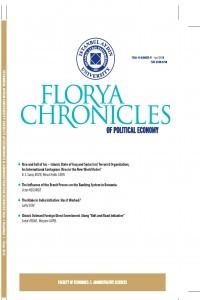Food Security And Drawbacks Of Neo-Liberal Food Policies
Food Security And Drawbacks Of Neo-Liberal Food Policies
Being a basic need for people all over the world, access to healthy and adequate food is indispensable for the survival of human kind. Yet there is a considerable inequality with regard to the access to food, as is the case with many other crucial resources. The global food policies purporting to address this inequality are in fact further exacerbating the problem towards becoming a chronic one. This paper will investigate the concept of food security and neoliberal food policies from a critical perspective. To this end, it will first touch upon the definition of human security concept and the relevance of food security within this context. Secondly, the policy proposals of institutions established under the United Nations for food security will be listed. Moreover, the global trade regime laid down by the World Trade Organization, the World Bank, and the International Monetary Fund, and its implications on the food security will be analyzed. Finally, the problems emerging from the global food policies, and the opposition movements that have developed as a reaction to these will be investigated
Keywords:
Food security, Human security, Neoliberalism, Fair Trade Food sovereignty,
___
- Istanbul: Sinek Sekiz. Wittman, H. (2011). Food sovereignty a new rights framework for food and nature?. Environment and Society: Advances in Research. 2(1), 105.
- Woods, N. (1999) Order, globalization, and inequality in world politics. In A. Hurrell & N. Woods (Eds.). Inequality, globalization and world politics (pp. 8-35). Oxford: Oxford University Press.
- ISSN: 2149-5750
- Yayın Aralığı: Yılda 2 Sayı
- Başlangıç: 2015
- Yayıncı: İstanbul Aydın Üniversitesi
Sayıdaki Diğer Makaleler
Food Security And Drawbacks Of Neo-Liberal Food Policies
Political Violence and Terrorism: Insight Into Niger Delta Militancy and Boko Haram
Özüm Sezin UZUN, Yusuf Saheed ADEGBOYEGA
Development as Systems: Systems Frameworks, Sub-Saharan African Development, and Health Systems
Relationship Between Political Instability & Growth In Some Selected Mena Countries
Economic Development In Africa: Salient Trends and Priorities
Turkey’s Education Diplomacy With Africa
Lord Curzon and the Use of Secret Intelligence at the Lausanne Conference: 1922-1923
Sanal Organizasyonların Yönetim Fonksiyonları Açısından Geleneksel Organizasyonlardan Farklılıkları
